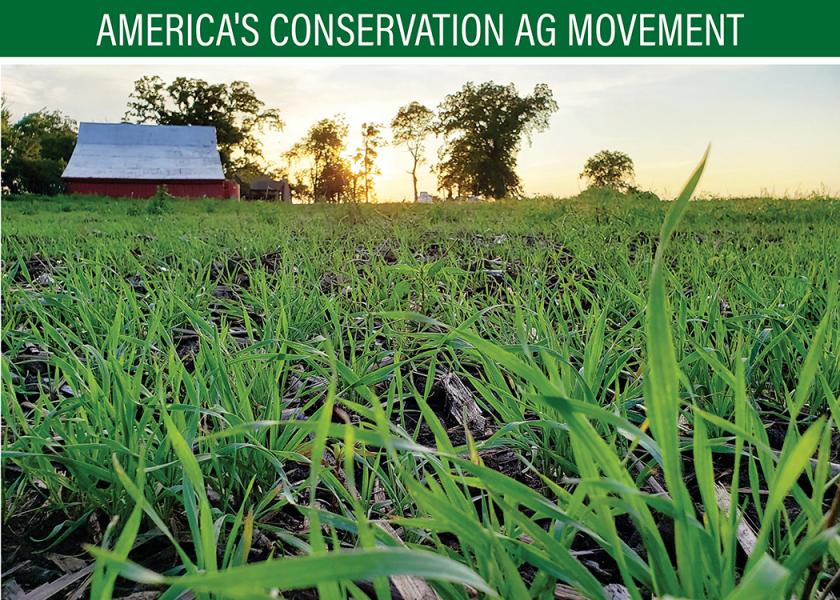Sustainable Farming Events Showcase ‘Struggles and Successes’

Ryan Heiniger sowed his first cover crop seed on his southeast Iowa farm on July 19, 2019. Fifteen inches of rainfall over a 35-day period earlier that year, in April, had convinced him that even his “tabletop flat fields” could benefit from cover crops to help retain soil and nutrients.
“We farm in the floodplain of the Mississippi River and had dismissed cover crops, because we didn’t think we had erosion,” he says. “Well, we do.
“When these big rain events come through, I see the soil move on our farm. That motivates me to want to make sure that it stays put, so it's there for my kids as the fifth generation here."
In addition, other corn and soybean growers’ struggles and successes with conservation farming practices have encouraged him to experiment on his fields. In the process, he says he has seen some practices work well and others that haven’t.
“There’s no one size that fits all farms,” he says. “This is about striving to improve, doing things better and not just accepting the status quo.”
Last year, Heiniger joined America’s Conservation Ag Movement as its program director and now oversees its state and local sustainable farming projects.
He says America’s Conservation Ag Movement gives farmers a platform to share their conservation journey, meet other farmers on the same path and access the resources they need to undertake change.
During a recent Agri-Talk segment, Heiniger discussed a variety of farmer-focused events and projects the Program has in the works across five states this summer.
You can get the program highlights from this Agri-Talk discussion between Heiniger and Host, Chip Flory, here:







